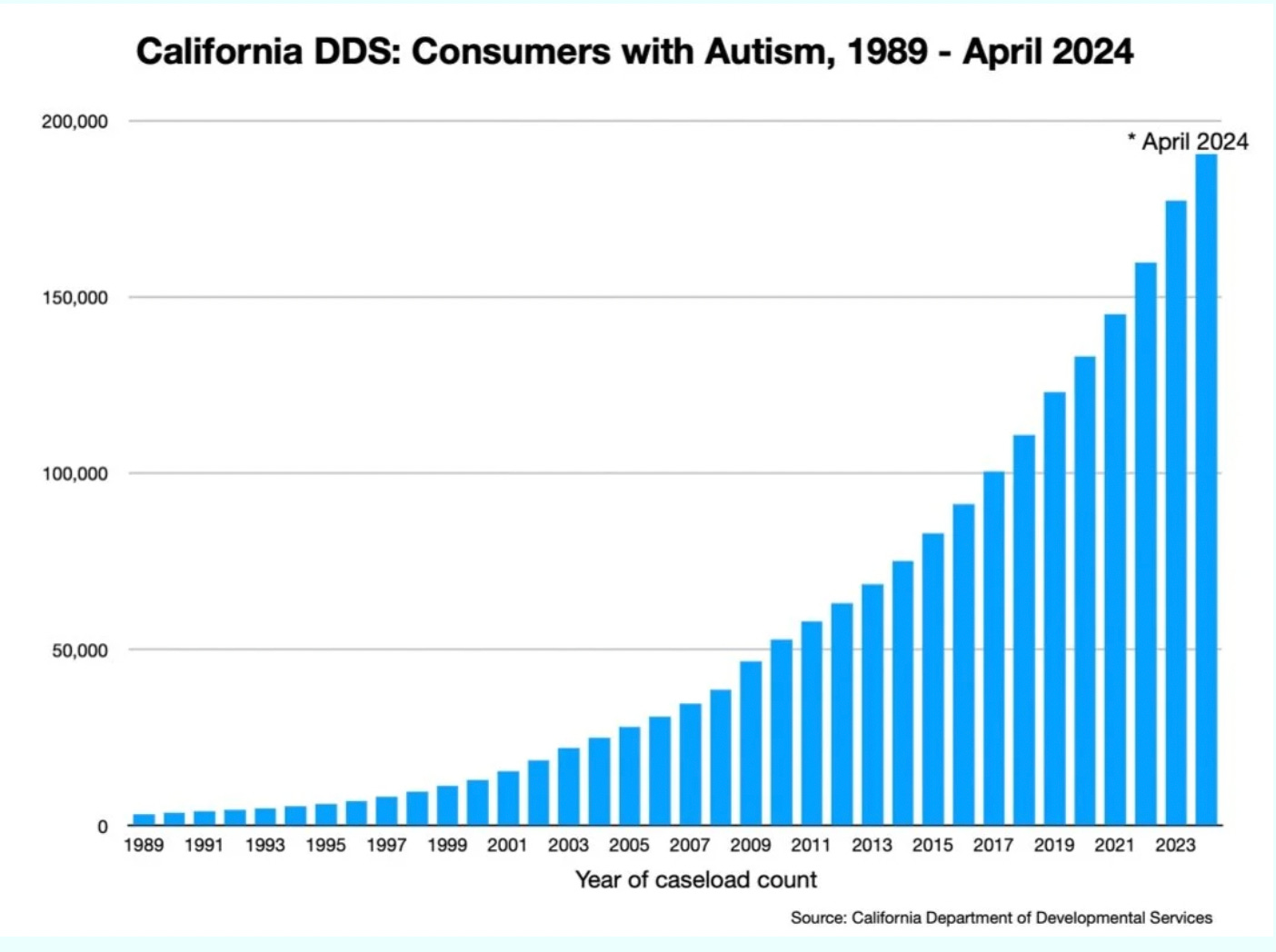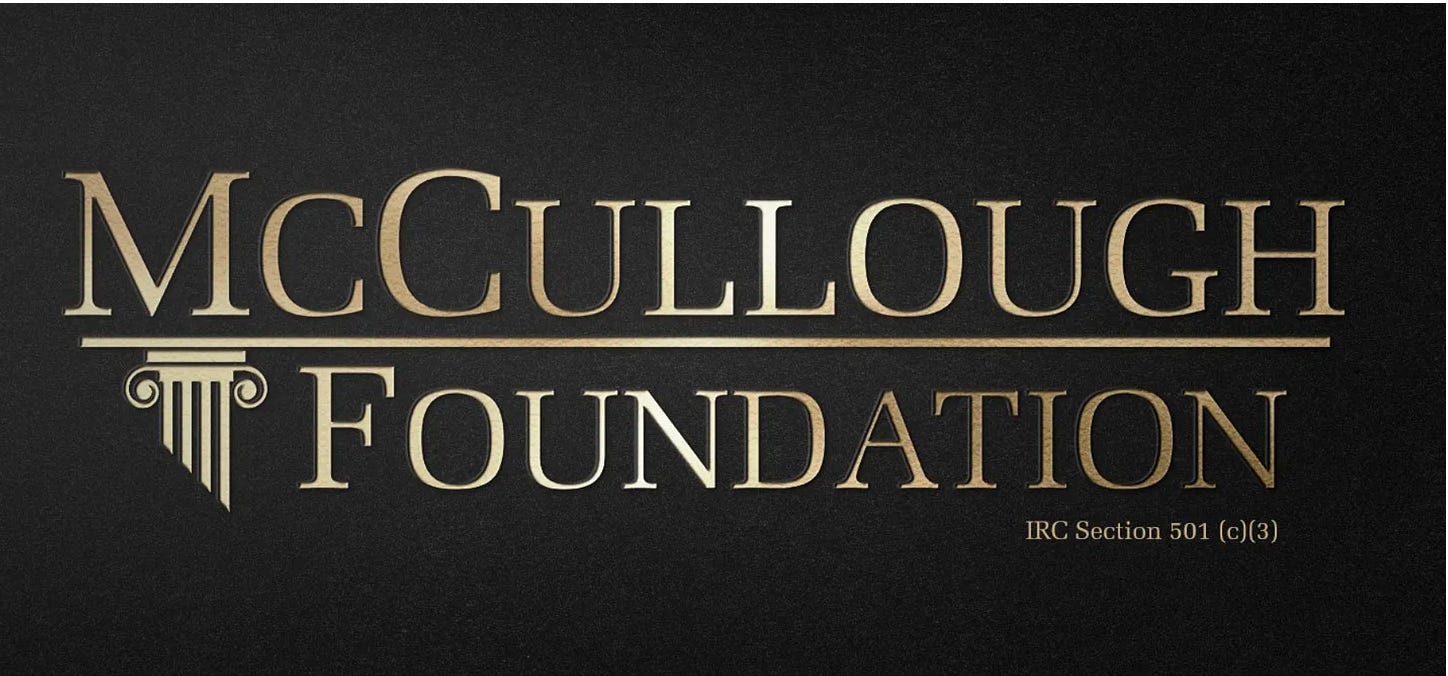Trump Raises Alarm About Autism, Suggests Acetaminophen & Hyper-Vaccination as Possible Causes
President and HHS Secretary mention the potential role of large vaccine bundles administered to infants, medical advisors only speak about Tylenol.
President Trump just raised the alarm about the dramatically rising prevalence of autism, and he emphasized that it must be caused by something in the environment. He mentioned acetaminophen and hyper-vaccination as prime suspects.
While the President and HHS Secretary also spoke about the suspect of large vaccine bundles administered to infants, their medical advisors (Jay Bhattacharya, Marty Makary, Mehmet Oz, and Dorothy Fink) focused their remarks exclusively on Tylenol, and didn’t mention vaccines.
At the McCullough Foundation, we are currently performing an exhaustive investigation of autism. We have carefully examined Tylenol, and we have found little evidence to warrant regarding it as a prime suspect. Interest in the purported Tylenol-Autism link has recently been piqued within the same institutions that have long vehemently denied that autism is linked to childhood vaccination. Thus, the totality of circumstances suggests that Tylenol is more of a red-herring than a true suspect.
Since it became a widely used, over-the-counter drug in 1960, Tylenol has been the only recommended medicine for relieving pain and reducing fever in pregnant women and infants. My entire Generation X (born between 1965-1980) was exposed to Tylenol in utero, and our mothers often gave it to us to lower our fevers from frequent earaches. And yet, in my birth cohort (1970), autism was virtually unknown.
The trend of dramatically increasing autism began in the late eighties, following the passage of the National Childhood Vaccine Injury Act of 1986. This Act granted liability protection to vaccine manufacturers, which was followed by a rapid proliferation of the number of shots on the childhood schedule.
We believe that “Autism Spectrum Disorder” is far too broad and ill-defined to be a useful diagnostic concept. Our chief concern and the focus of our research is Profound Autism. As we note in our new book, Vaccines: Mythology, Ideology, and Reality.
Profound autism, a term formally recognized by the Lancet Commission, describes a subset of individuals with autism spectrum disorder (ASD) who require twenty-four-hour support and assistance due to significant intellectual disability and limited to no language skills. Many in this cohort cannot be toilet-trained or refrain from banging their heads on solid objects. Analyzing CDC estimates for 2022, we note that among the 34.6 million children in the United States aged eight and under, approximately 1.1 million were estimated to have ASD. According to CDC estimates, a quarter of these, or 275,000, suffer from profound autism. This is a stupendous burden for our entire society, overwhelming families, schools, and health systems.
Consider that the United States saw the highest incidence of polio in 1952, with over 21,000 cases of paralytic poliomyelitis, many with lifelong sequelae. This experience was the subject of enormous media coverage that terrified most Americans. And yet, rationally evaluated, it is dwarfed by the public health catastrophe of profound autism—i.e., 275,000 American children requiring intense, around-the-clock care for the rest of their lives.
We are determined to investigate and ultimately ascertain the true cause or causes of Profound Autism, and we doubt that Tylenol is the culprit. Please click on the link below to donate to the McCullough Foundation to support our enormous research effort.





Please investigate ultrasounding the human fetus. We are bombarding week old fetuses with ultrasound. This is not good. This practice began in the mid to late 80s and has only ramped up in the quantity of ultrasounding.
A major problem with this theory is that in 1982, because of the cyanide poisoning scare, tylenol usage plummeted from 35% to only 8% and didn't recover to its previous high until about 2005. If Tylenol was a contributor to autism then we would've seen a drop in autism. But we didn't. In fact it continued to skyrocket during that period. Especially with the increase in the products added to the vaccine schedule in that time period. So it is very unlikely that Tylenol has anything to do with autism. There are many metabolic processes that minimize the affects of such toxins when ingested. But there are no protections when a toxin is directly injected into the blood stream. They will have immediate and unrestricted access to the central nervous system and will cause untold damage.